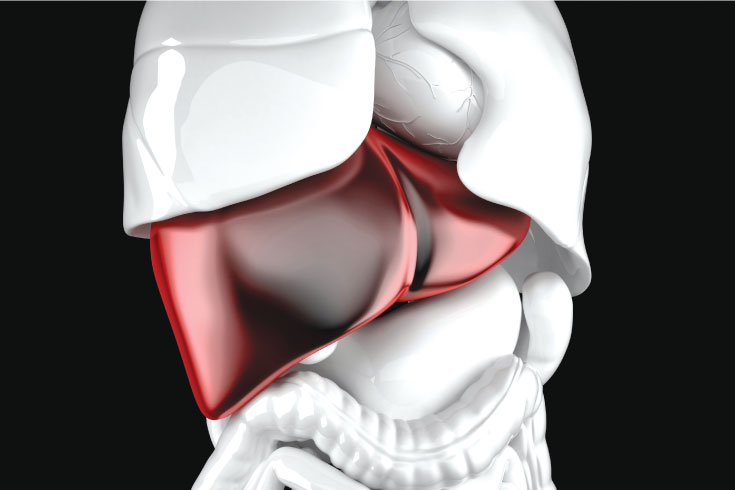Hepatitis is an inflammatory disease of the liver that can result in various health issues, some of which are life-threatening. It is caused by a variety of viruses, specifically five main strains of the hepatitis virus, which result in different types of hepatitis categorised as types A, B, C, D and E.
The three most common causes of hepatitis in Malaysia are hepatitis A, B, and C, in which approximately 75% of all viral hepatitis cases in Malaysia are due to hepatitis B infection.1 Dr Gew Lai Teck, Consultant Gastroenterologist & Hepatologist, Sri Kota Specialist Medical Centre, highlights the key information about this disease in this special feature.
1. What is hepatitis, and what causes it?
Hepatitis refers to liver inflammation and injury. Common types of hepatitis include viral hepatitis, drug-induced hepatitis, alcohol-related hepatitis, and fatty liver. Depending on the type, the causes are different. In viral hepatitis, Hepatitis A, B, and C are the common causes. In drug-induced hepatitis, it is caused by a related drug that is not compatible with the patient. Excessive alcohol use can also lead to alcoholic hepatitis.
2. What’s the difference between Hepatitis A, B and C?
Hepatitis A commonly induces acute and short-term liver inflammation. It is transmitted from the oral route – for example, intake of food. Hepatitis B and C can lead to acute hepatitis, and in some patients, it remains in the patient’s body, turning into a chronic form. In these patients, they may cause slow but long-term damage leading to scarring and liver hardening. Hepatitis B and C transmit through blood contact.
3. What are the complications of hepatitis?
In acute and short-term hepatitis, it may lead to liver failure if the condition is severe. In chronic and long-term hepatitis, scarring and hardening of the liver. In these cases, patients are prone to vomiting blood (variceal bleeding), water in the peritoneum (ascites), infection, toxicity in the brain (hepatic encephalopathy) and also liver cancer (hepatocellular carcinoma).
4. Who are at risk?
For hepatitis A and B, those who are not vaccinated against the virus are at risk. For blood-borne viruses, they can be transmitted through needle-sharing while using recreational drugs, unprotected sexual contact or viral transmission from mother to the baby during birth. Excessive use of alcohol can cause hepatitis. In addition, being overweight and overconsumption of simple sugar can lead to fatty liver.
5. What are the treatments available for hepatitis?
Again, this depends on the cause of hepatitis. For hepatitis A, there are no treatments – the patient’s own immune system is expected to cope with this virus during the infection. Commonly it can cause a short-term symptomatic illness but will recover by itself. In a handful of patients, the disease can progress to liver failure and death without aggressive treatment such as a transplant.

For Hepatitis B, the physician needs to assess the patient to determine the state of the disease. We have very good medication to suppress the virus activity for this condition, but a long-term cure is difficult.
For hepatitis C, we have nearly 100% effective treatment for it, and it involves well-tolerated oral pills taken over the course of 3-6 months. Due to this, the World Health Organization is looking at the eradication of this virus by 2030.
To date, there are no effective treatments for alcohol hepatitis except for stopping alcohol use. For fatty liver, many medications are being developed. But the most crucial measure is still weight control.
6. How can we prevent hepatitis?
The prevention measures are exhaustive. Vaccination for Hepatitis A and B effectively prevents transmission of the virus. We now have medication to prevent the transmission of Hepatitis B from the mother to the baby during pregnancy and delivery. Protected sex prevents blood-borne hepatitis virus. Drinking in moderation prevents alcoholic hepatitis, while weight control and avoiding obesity effectively prevent fatty liver.
Hepatitis Symptoms to Be Aware of Symptoms of hepatitis A, B and C may include fever, malaise, loss of appetite, diarrhoea, nausea, abdominal discomfort, dark-coloured urine and jaundice (yellowing of the skin and whites of
the eyes).
Source: World Health Organization (WHO)
Reference:
1. Raihan R. Hepatitis in Malaysia: Past, Present, and Future. Euroasian J Hepato-Gastroenterol 2016;6(1):52-55
 Dr. Gew Lai Teck
Dr. Gew Lai Teck
Consultant Gastroenterologist & Hepatologist,
Sri Kota Specialist Medical Centre


